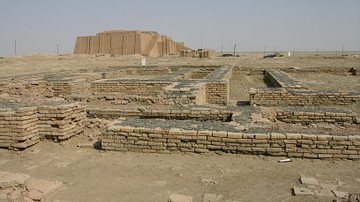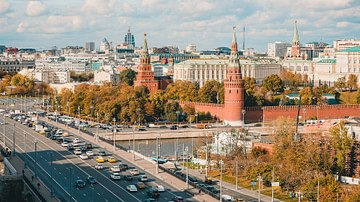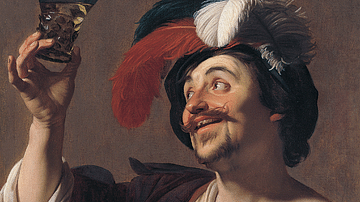Search
Search Results

Definition
Ur
Ur was a city in the region of Sumer, southern Mesopotamia, and its ruins lie in what is modern-day Tell el-Muqayyar, Iraq. According to biblical tradition, the city is named after the man who founded the first settlement there, Ur, though...

Definition
Renaissance Architecture
Renaissance architecture originated in Italy and superseded the Gothic style over a period generally defined as 1400 to 1600. Features of Renaissance buildings include the use of the classical orders and mathematically precise ratios of height...

Definition
Leonardo da Vinci
Leonardo da Vinci (1452-1519) was an Italian Renaissance artist, architect, engineer, and scientist. He is renowned for his ability to observe and capture nature, scientific phenomena, and human emotions in all media. Leonardo’s innovative...

Definition
Renaissance Art
The art of the Renaissance period in Europe (1400-1600 CE) includes some of the most recognisable and best-loved paintings and sculptures in the world. Masters were often skilled in both painting and sculpture, and by studying the art of...

Definition
Henry VII of England
Henry VII of England ruled as king from 1485 to 1509 CE. Henry, representing the Lancaster cause during the Wars of the Roses (1455-1487 CE), defeated and killed his predecessor the Yorkist king Richard III of England (r. 1483-1485 CE) at...

Definition
Kremlin
The Kremlin is a fortified complex located in the centre of Moscow, Russia, which is made up of towers, high walls, palaces, and cathedrals. Construction of the Kremlin began as early as the 12th century. As one of Russia's most famous landmarks...

Definition
George Frideric Handel
George Frideric Handel (1685-1759) was a composer of baroque music who was born in Germany but became an English citizen. His most famous works include his Messiah, Water Music, baroque Italian operas, and English oratorios. A hugely successful...

Definition
Giovanni Boccaccio
Giovanni Boccaccio (1313-1375) was an Italian poet, writer, and scholar. His most famous and influential work is the Decameron, completed by 1353, in which his ten characters present 100 tales of everyday life. The book covers all manner...

Definition
Petrarch
Petrarch (1304-1374 CE), full name Francesco Petrarca, was an Italian scholar and poet who is credited as one of the founders of the Renaissance movement in art, thought, and literature. Petrarch actively searched for 'lost' ancient manuscripts...

Definition
Utilitarianism
Utilitarianism is a philosophy founded by Jeremy Bentham (1748-1832) and then extended by other thinkers, notably John Stuart Mill (1806-1873). Utilitarianism involves the greatest happiness principle, which holds that a law or action is...